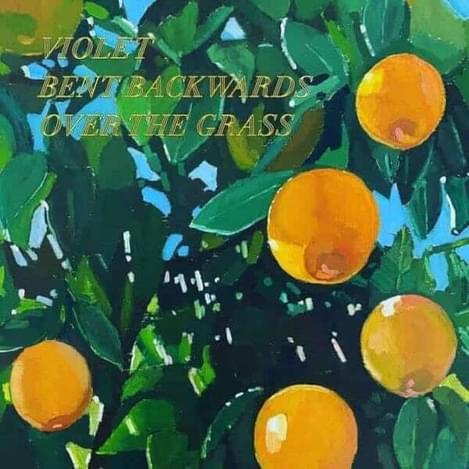Lana Del Rey’s first poetry collection proves that she's the Ginsberg of the Instapoetry generation
"Violet Bent Backwards Over The Grass"

These fourteen poems spread out over 39 minutes, herald Lana as the Ginsberg of the Instapoet era. While she’s clearly influenced by 1950s Beat poetry and 2010s Instagram poetry alike, Lana The Poet doesn’t fit neatly into either camp. Forgoing the pithiness of Instapoets, she plays with the aurality and lawlessness of the Beats (there are occasional embellishments of piano and saxophone on the Jack Antonoff-soundtracked audiobook, reminiscent of Kerouac’s reading of Poetry for the Beat Generation over Steve Allen’s piano), but Del Rey's reading is nowhere near as erratic as the jazz that inspired the Beats poets. Instead, Violet Bent Backwards Over The Grass seems to inspire a new genre of poetry—Chillwave-Beat Poetry.
Violet gives you everything you could want and have come to expect from Del Rey - and more. There’s a love letter to LA; reflections on ‘the culture’; a recital of my favourite Instagram bio—her own—”My life is my poetry, my lovemaking is my legacy”. It is, in sum: ridiculous, glamorous, hilarious, stupid, brilliant, cringey, honest, pathetic, beautiful.
What’s so admirable about Del Rey - especially in this instance - is her ability to simply show up exactly as she is. There’s no effort to sound smarter or deeper than she really is - and when there is, she makes a spectacle of that effort. Ginsberg and Whitman tattooed on her arms. Nonsensical references to Sylvia Plath. Three-dollar words used incorrectly. She’s a poet, goddamnit.
And Lana the Poet doesn’t differ much from Lana The Songwriter. In both roles, she possesses the syllabic inclination to weigh everything towards the centre of each line, rather than writing in end-rhymed couplets. Let’s take "Off To The Races", one of Born To Die’s more poetically dexterous tracks as an example. She lets each rhyme live and breathe and sprawl: “And I'm off to the races, cases / Of Bacardi chasers / Chasing me all over town / 'Cause he knows I'm wasted / Facing time again at Riker's Island”. You’ll hear this across Violet - half-rhymes favoured over poetic contrition; the same vowel sounds carried across verses. Nothing is perfect, everything is developing and conforming to the mutable rhythm of thought and feeling. “With deep exuberance that only doing nothing can bring / Waiting for the fireworks to begin,” she says sexily (always sexily, because, can you even be a poet if you feel ugly and unlovely?)
Like her songwriter self, she’s also less devoted to playing with words themselves, than she is with images and surfaces. Her mind is a cinema, the visuals outstanding. “Candy from my eyes and my veins you run citrus/Watercolor images of serpents on orange trees arise in my midst,” she says, giving us a quick glance into the enormity of her imagination. When she tries to apply the same kind of artistry to her words—syntactically, semantically—she falls short. Alliterative riffs are scattered across the poems, and they’re all rather puny, inchoate and embarrassing. Take "What Happened When I Left You", for instance, which Lana opens with the line: “Perfect petals punctuate the fabric’s yellow blue,” as though she’s trying to impress a school teacher.
But there’s no denying that her rhythm is impeccable. And, like Ginsberg, her breathline (when and how she inhales and exhales) is part of how the poetry should be understood—something the physical book - due out in September - will unfortunately lack. She pants in moments of urgency; takes a deep breath before she enters another avenue of feeling. She veers between composure and pleading. “LA, I’m upset, I have complaints, listen to me / They say I come from money and I didn’t and it’s unfair,” she says, huffing like she’s running for the last boat home.
What fans will appreciate most about this collection is how Del Rey's poetry seems to give us a much clearer understanding of her than than her songs are able to. She tells us where she shops, where she lives, where she parties—she draws out the cartography of her heartbreak across LA, from Longbeach to Hancock Park. Critics too, who have spent Lana’s career measuring her artistic success against her resilience and empowerment, will love the passages about Lana’s flying and sailing lessons, as she attempts to “captain” her own reality. But, most importantly, Violet has given us all the definitive proof that Lana could have done ‘Howl’, but Ginsberg could never get anywhere near to the majesty of “my life is my poetry, my lovemaking is my legacy.”
Get the Best Fit take on the week in music direct to your inbox every Friday

Tunde Adebimpe
Thee Black Boltz

Julien Baker & TORRES
Send A Prayer My Way

Bon Iver
SABLE, fABLE





